EXCLUSIVE INTERVIEW: Archbishop of Vilnius: Despite Persecution & Ideology, Lithuanian Faith Stands Strong
In Wide-ranging Conversation, Archbishop Grušas Recalls Miraculous Madonna of Vilnius' Treasured Place in Heart of St. John Paul II
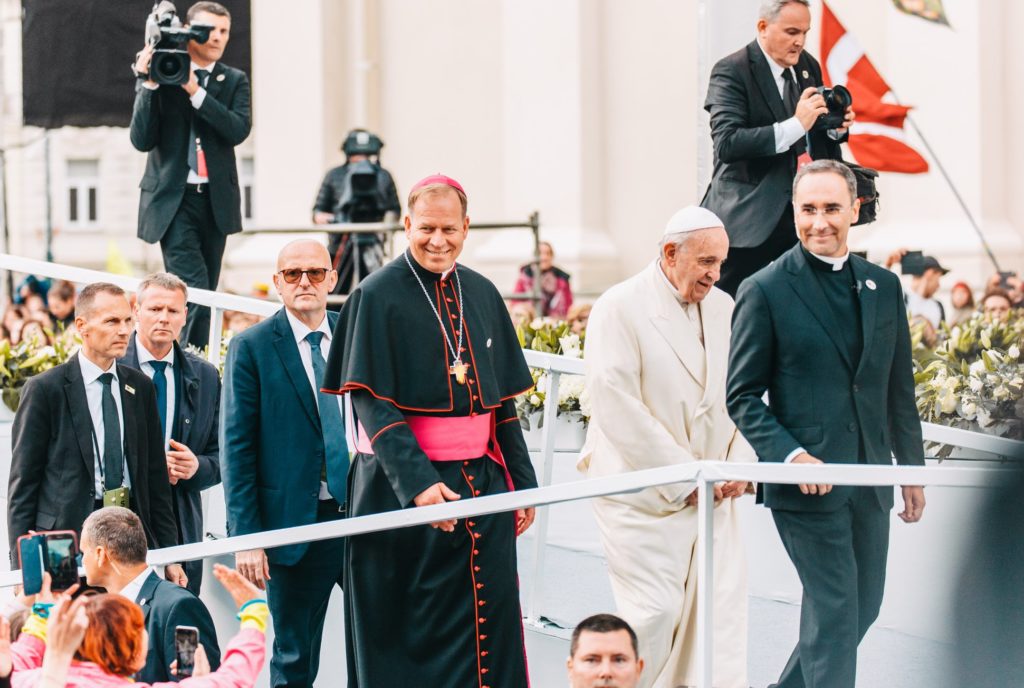
Despite religious persecution and ideologies of the past and present, Archbishop Gintaras Grušas of Vilnius suggests the faith of the Lithuanian people has withstood the test of time.
In an exclusive interview with Exaudi one day after Divine Mercy Sunday, the Lithuanian prelate stressed this as he elaborated on the unwavering witness of his people’s faith even when such resistance could have cost their lives. On this note, he accredits the passing down of the treasures of the faith to grandmothers.
Speaking to Exaudi, the American-born Archbishop reflects on how the first Divine Mercy Sunday was celebrated in his city of Vilnius at a diocesan level, and St. Faustina Kowalaska’s personal episode in front of the miraculous Our Lady of the Gates of Dawn, where amid crowds, from the image of Divine Mercy, she saw it come to life with Jesus blessing the people present and rays come down upon.
Moreover, Archbishop Grusas discusses the great devotion of St. Pope John Paul II to Our Lady of the Gates of Dawn in Vilnius and why his first visit after the fall of Communism was so momentous. He also reflects on the Lithuanian Chapel in St. Peter’s Basilica and why the Polish Pope prayed there first at the start of his pontificate.
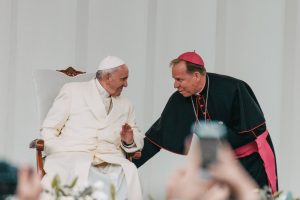
“We all know that St. John Paul II had a great devotion to Our Lady and I think this is the place where his mother and his Divine mother sort of intersected in his heart,” Archbishop Grusas says as he explains the saint’s attachment to this Lithuanian Marian devotion.
To this day, thousands of votives of thanksgiving for all the miracles of Our Lady at the Gates of Dawn occupy the whole space. With the first miracle having been the saving of a toddler who was badly injured after falling from a building, to episodes where she taught abusive Russian and Swedish soldiers some unforgettable lessons, pilgrims cannot help but to plead to her. Even as the Archbishop clearly explains the issues facing contemporary Lithuanian society, what is non-negotiable is the strength and determination these people have had to exercise their liberty and freely live their faith.
Here is Archbishop Grusas’ conversation with Exaudi:
***
EXAUDI: One of the most famous places in Vilnius, the city of which you are Archbishop, is the Gate of Dawn, where Our Lady is venerated. It is said that John Paul II was also very devoted to Our Lady of the Gate of Dawn in Vilnius, is this true? And why was he so devoted to her?
ARCHBISHOP GINTARAS GRUSAS: Yes, he was. As a matter of fact, from the first day of his pontificate he not only went to the Lithuanian Chapel of the Gates of Dawn in St. Peter’s Basilica to pray, but he also cited both Our Lady of the Gates of Dawn and the Madonna of Czestochowa in one of his first homilies, I believe. It seems to me that it comes from his upbringing. I believe that his mother had a devotion to Our Lady of the Gates of Dawn in a special way and he had always wanted to come to Vilnius to visit but because of the Communists, he never had the chance. When he visited in 1993, it was his first visit there. He was very happy to be able to pray there and he recalled his mother as well in a special way when he was there. We all know that St. John Paul II had a great devotion to Our Lady and I think this is the place where his mother and his Divine mother sort of intersected in his heart.
Moreover, there is a strong bond between the cities of Krakow and Vilnius, which have been historically connected back to the days of St. Casimir. Some of this great devotion of St John Paul II can also be attributed to his having grown up in Krakow.
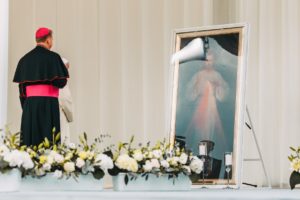
EXAUDI: Popular devotion recalls many miracles linked to the veneration of Our Lady of the Gate of Dawn. The first miracle recorded was in 1671, the same year the first Chapel was built. A two-year-old child fell from the second floor onto a stone pavement and was badly injured. The parents then prayed to Our Lady and the next day the child was healthy once again. What about other miracles?
ARCHBISHOP GRUSAS: That is the story of the first miracle, yes, and there have been many, many since – a whole tradition of votives of thanksgiving from people who prayed for blessings and for miracles received. These ex-votos cover the whole chapel itself. The walls are just solid votives throughout the whole chapel, which is a great testimony, but keep in mind that doesn’t include all the votives that were there. In 1927, I believe, they did a count and they found more than 14,000 of these thanksgiving votives that had been brought to the chapel. There are various stories not only of healing but in various times Lithuania had been invaded by various troops. In 1708, Russian troops had arrived and one of the soldiers had entered to steal some of the silver coverings from the picture of the Madonna. He was found by the troops having been struck to death, or as they say in the writings ‘to pieces,’ which put a great fear in the rest of the troops and also inspired a great devotion by the Russians that has gone down through the centuries. As a matter of fact, the Orthodox Curia is almost next door to where the Gates of Dawn is, and they asked each year permission to come and pray formally before the image to the Madonna.
The same thing had happened in 1702, with Swedish troops who came in and tried to keep people from praying before Our Lady because it is in the Gate of the city, and they had their troops stationed and as they were smoking there and trying to prevent people from praying; the whole gate which usually takes 10 men to move, fell off its hinges and fell on them [laughing.] So not necessarily a miracle, but the troops very quickly changed their view of devotion to Our Lady. Various other healings have been attributed to her, and you can see this through images on the votives – typically around the world—of hands, arms, the heart, of things which have been healed. There is a whole volume of books that have been compiled over the years of these testimonies.
EXAUDI: There is a Vilnius Gate of Dawn Mother of Mercy Chapel (Italian: Cappella Lithuania) in St. Peter’s Basilica in Vatican City. Pope Paul VI consecrated it in 1970 and it is the place where Pope John Paul II first prayed after being elected as Pope in 1978. Who frequents that Chapel today?
ARCHBISHOP GRUSAS: The pilgrims that come in from both Lithuania and Poland often go, since both countries share this devotion. But Lithuanians and Poles who reside in Rome also occasionally will have Masses to commemorate the chapel. Last year, they celebrated its 50th anniversary. The Lithuanians in Rome had a limited service there due to the pandemic. They couldn’t fill up the chapel. But it is worth reflecting on the history of that chapel itself because there are two famous Lithuanians who were working in the Vatican at that time and who were instrumental in providing that the chapel be built. A very famous Lithuanian artist did the bas-relief sculptures of the wall that depict the scenes of Lithuania’s history and the suffering of the Church. The two prelates in the Vatican instrumental in moving it forward were Archbishop Paul [Casimir] Marcinkus, who was Pro-President Emeritus of the Pontifical Commission for the Vatican City State and President of the Vatican Bank from 1971 to 1989 [American-born, but his father left Lithuania to escape possible induction into the Russian army], and Monsignor now-Cardinal [Audrys Juozas] Bačkis who was working in the Secretariat of State as an assessor. They were both very instrumental in having that chapel dedicated as it was at the time when Lithuania itself was occupied by the Soviets, so it had to be the Lithuanians outside Lithuania who were instrumental in having this come to fruition.
EXAUDI: Everyone associates devotion to the Divine Mercy with Saint Faustina Kowalska and with Łagiewniki, the Shrine near Krakow. However, few know that the first picture of that venerated image of Divine Mercy was painted in Vilnius. Is this true? And what is the link between Our Lady of the Gate of Dawn and the Divine Mercy?
ARCHBISHOP GRUSAS: There is a very tight link as a matter of fact because Blessed Michał Sopoćko [St. Faustina’s confessor] once the image was finished, the first place that it was exhibited publicly was at the Gates of Dawn during the Sunday after Easter when he was invited to preach a three-day retreat at the Gates of Dawn. He made a promise that he would be able to expose the image without telling anybody where it was from or the history of it. The Gates of Dawn therefore is the first place the image was exposed and St. Faustina was in the crowd and she recounted seeing Jesus bless the people and the rays come down on the people. The image turned into a live, or living, image, I would say. So that was very tightly coupled and later on, the first Divine Mercy Sunday was celebrated at a diocesan level here in Vilnius.
EXAUDI: In your opinion, how important is it today to celebrate the feast of Divine Mercy?
ARCHBISHOP GRUSAS: Since Jesus wanted it to be celebrated, I think it is very important [smiling.]
Vilnius Archbishop on Divine Mercy Sunday ‘Spiritually’ Interprets Pandemic Recommendations
EXAUDI: Right…
ARCHBISHOP GRUSAS: It really is a great source of blessings and forgiveness if you read the Diary of St. Faustina of what Jesus said, that He opens up His vast treasury of mercy on that day. Those able to make a confession or receive communion are granted really great graces. So, I think it is very important to pray for divine mercy every day, but if the Lord says this is the day, he wants it to be celebrated in a special way, then I think it is very important that we do.
EXAUDI: After the Nazi and Communist occupations, the Communist regime did everything possible to eradicate Lithuania’s Christian roots and people’s Catholic faith. What did you do not to lose this tradition? I remember when I was on the papal flight returning from the Pope’s 2018 trip to the Baltic nations, he challenged journalists to tell the stories of how these countries managed to pass the faith down, despite persecution and lack of religious freedom, so I would like to hear from you about how the faith was passed down in Lithuania?
ARCHBISHOP GRUSAS: I think one of the most important things that helped keep the faith was the passing down the faith, and the practicing of it, within the families. Grandmothers played an extremely important role in that, as parents couldn’t or had to be careful to not lose their jobs or get persecuted; so they, depending on their positions, had to be very careful. But the traditions were kept. The Catechism was taught by grandmothers, prayer and rosary in the family kept up. That I think was really at the foundations. We see how today the family is attacked at various degrees, so preserving the faith in the family was so important. Even today, during the pandemic, the ability to live the ‘home church’ and pray at home is very important, and very important to people, who are suffering the isolation and the tension of the pandemic, which affects us. There were lots of courageous people, who resisted in various ways. There was the Catholic Committee for Defense of the Believers’ Rights. It was a group of five priests. One of them is Cardinal [Sigitas] Tamkevičius [Archbishop Emeritus of Kaunas] who headed up and was the chief editor of the underground Chronicle of the Catholic Church of Lithuania, which documented the persecutions. And to understand that, you also have to understand that the Soviet persecutions nominally proclaimed freedom of religion. What these priests did was document abuses of human rights, under the Helsinki Accords, to which the Soviet Union was also a party. Basically, they would say: ‘Look, here are the laws of the Soviet Union, and here are how your local officials are not abiding by them, in not allowing freedom of religion.’ Ultimately, this [underground] Chronicle of the Catholic Church was very effective in getting the word out, not so much in Lithuania itself, but to the world. And I think that put some pressure as well on the Soviet officials. The third thing was the people. There was a group of people who were very adamant about protecting their liberty.
EXAUDI: How so?
ARCHBISHOP GRUSAS: Well, it was well demonstrated by the Hill of the Crosses, because at various occasions, the Soviets would tear down the crosses and uproot them. And overnight, people would gather and replant these crosses [smiling.] The government officials would knock them down and the people would keep resurrecting the hill, and they finally won. That’s their tenacity showing in the faith.
EXAUDI: What is the faith and practicing of the faith of Lithuanian Catholics today?
ARCHBISHOP GRUSAS: I would say it’s mixed because it’s also historically mixed. In the past, we’ve had that generation of parents who had not gone through catechesis or have the religious information. This was probably thirty years ago [where] we had the parents often coming to the catechesis for First Holy Communion with their children so they could hear the message and be able to answer the questions of their children. But now, literature, programming, radio have helped people have access to the tenets of the faith, so that part is covered, but we have different cultures coming in. If at one point, there was communist ideology that was being put forth, I think we are getting also now the Western, that modern western ideology that is trying to influence the mindset of people, that is in a sense consumeristic. And so, there is always that tension. But there are many young people who have found the faith in a new way, so there are groups and various prayer groups, and family circles of the faith. The pandemic, although affecting the ability of people to gather in community, has opened up ample opportunities for volunteering, whether it be Caritas or some other group. You see an understanding of people when there’s a difficult situation. They come forth to help others, which I think is a very good impetus in the Christian community.

EXAUDI: Over the past 30 years many things have changed in Lithuania, from the end of Communism to Lithuania’s entry into the European Union. Are the country’s religious traditions still important for young people?
ARCHBISHOP GRUSAS: It really is a mix, I would say, with the strong influence of modern culture, but there is also the need – as Pope Francis encourages—to reach down and look back at your roots. Look at where they came from and in doing so, avoid that temptation toward individualism, which really affects society in general. There’s tension. It’s tension like that being faced almost everywhere else in the western world, nothing unique in that sense.
EXAUDI: How has the pandemic affected the Church in Lithuania?
ARCHBISHOP GRUSAS: There have been two waves, and we are currently in our third wave. We did go virtual for a while, but different I would say, as far as I know, from some places. The first time we went very strict because we didn’t know the nature of what we were dealing with, and we totally followed the advice given. Now, depending on the level of the current infections, we go by county, and we adjust by spacing and limiting the number of the people in the churches. Once we get above the marker of 500 cases per 100,000 on a seven-day average, then we do the Masses virtually. After that first time, what we do now is we keep the churches open so that even if the people cannot go to Mass, they can come into the church at other times. They can go to confess and receive the Eucharist.
EXAUDI: Was it permissible to go to Church during lockdown in Lithuania. Initially in Italy, it had not been, as it was not justified during that first phase as an essential service…
ARCHBISHOP GRUSAS: The government has not taken action regarding anything having to do with the Church since the Catholic Church, because of our accords with the Holy See, the government sees everything with regard to the way the churches are run is left to the churches, to the church itself. So even all the impositions that we make were a decision of the bishops, not of the government. And we have had two prime ministers who have acknowledged that publicly.
EXAUDI: In a recent interview with Spanish radio COPE, the Vatican Secretary of State, Cardinal Parolin, said that in Europe there is a loss of faith and above all a loss of reason. The reference was to the new laws on ethical questions in several European countries, ever more removed from the Church’s teachings. What do you think of those words? And how do they apply to Lithuania or Eastern Europe?
ARCHBISHOP GRUSAS: We are going through those same moral questions and how societies should react to those things. There is that discussion and that tension because we are dealing with another ideological system in the West that is trying to construct a way that man can save himself. You saw that under the Fascists and the Communists in trying to create an ideology where man is his own savior. What we, therefore, have now is a system that man could create himself in his own image. We see that with all the gender theory, with control over life and death, with always stronger attempts and new ways to push this, whether its abortion or euthanasia or a mix of trying to determine genetic editing. All those things, I believe, are an ideology of man aiming to control his own destiny completely, not having a reason to serve God. Or in a way it is a way of denying God’s primacy. In Lithuania recently, there have been two great debates going on.
EXAUDI: What are they?
Lithuania has not ratified the Istanbul Convention, in which 90% of which is very good in condemning the abuse of women, but it has a part in it that is very clearly an attempt to get a definition of social gender, or gender ideology, at a European level, to force local countries to adapt that in their own law and to include it in the school systems as well, where parents would not have the ability to teach what they believe to their children. There are these debates, and Lithuania, therefore, has not ratified the convention. There are various other sorts of laws that are often coming in with a very large lobby within the European Union, or in general, as the United Nations also is a party to some [such] laws. So that is going on. We see that very clearly. People here however are defiant, one could say, in the sense of being able to hold their own, if you will, and able to make a decision at a local level. So that clearly is happening. I also think that the fact that Lithuania has survived attempts at the other two ideologies, there is a sense of people knowing, the falsity of the system, and there is a sense that this is another ideology.
EXAUDI: The second debate on the other hand?
The second debate is about a law with regard to same-sex partnerships. A new party was elected and they are trying to push that into our laws. Despite much pressure at a European level especially, the majority of people in Lithuania are questioning whether that should be in our laws. So, it’s not clear whether that will pass.
EXAUDI: Thank you very much again for your time, Archbishop Grusas.
Related
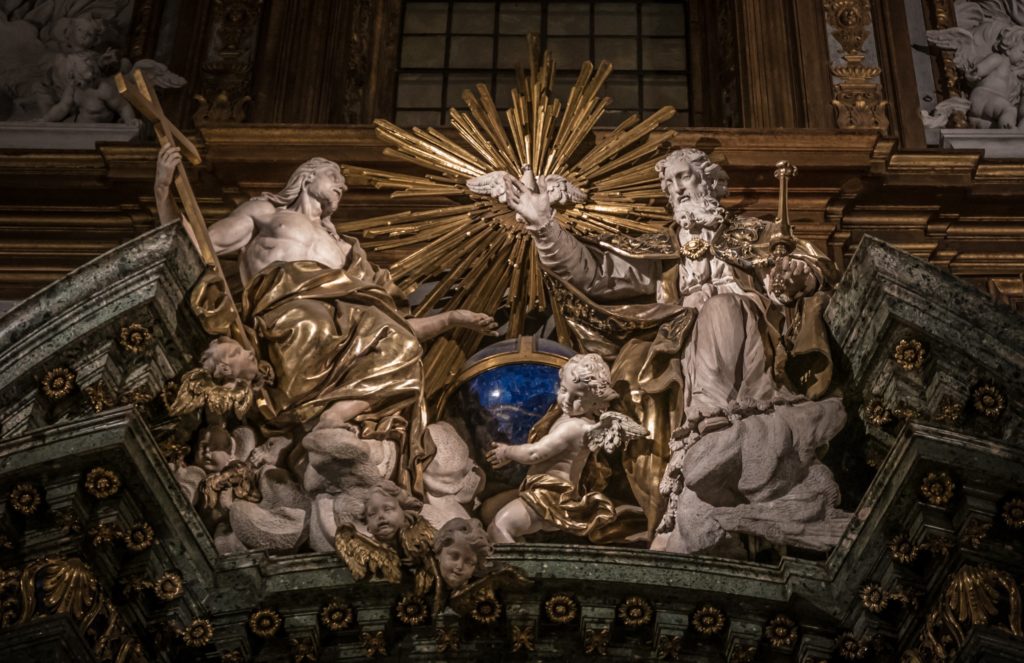
Feast of the Most Holy Trinity
Joaquín Mestre
15 June, 2025
3 min
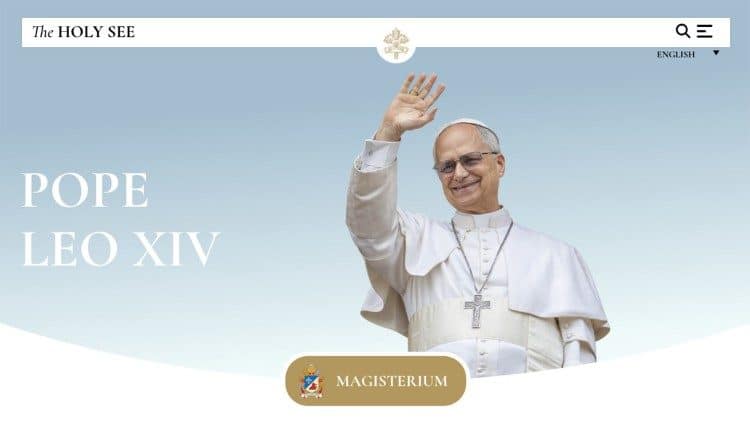
A Peruvian redesigns the Vatican website
Exaudi Staff
11 June, 2025
2 min
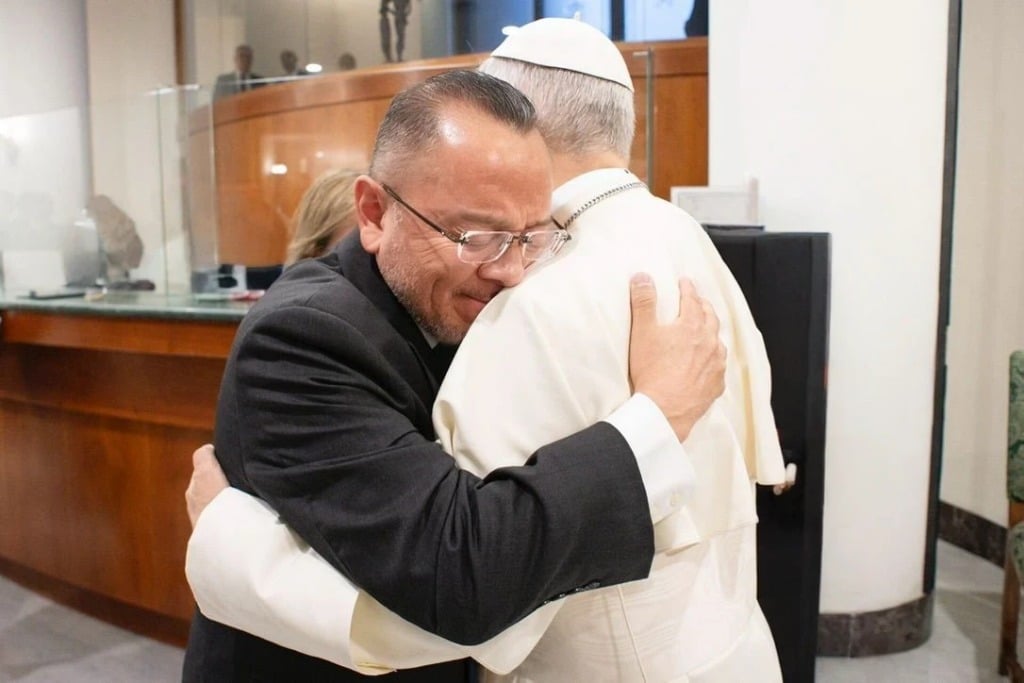
Leo XIV: An Undeserved Gift for Latin America and the World
Exaudi Staff
10 June, 2025
10 min
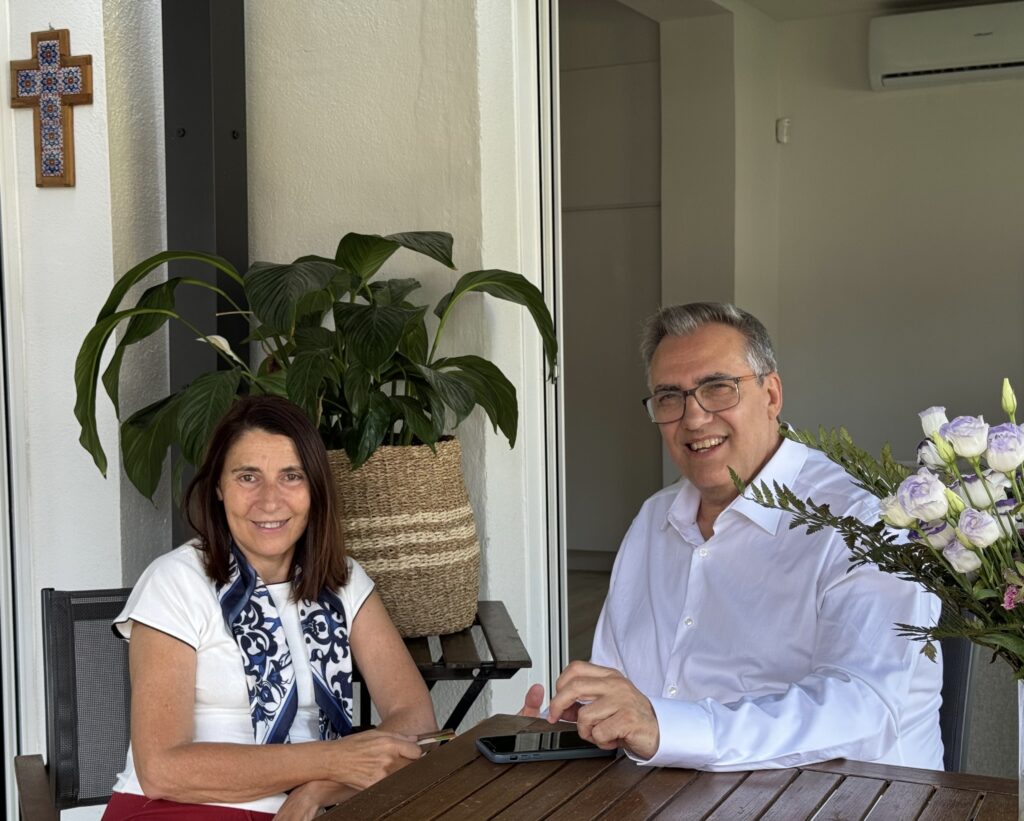
Come to me and I will give you relief
Albert Cortina
09 June, 2025
9 min
 (EN)
(EN)
 (ES)
(ES)
 (IT)
(IT)

